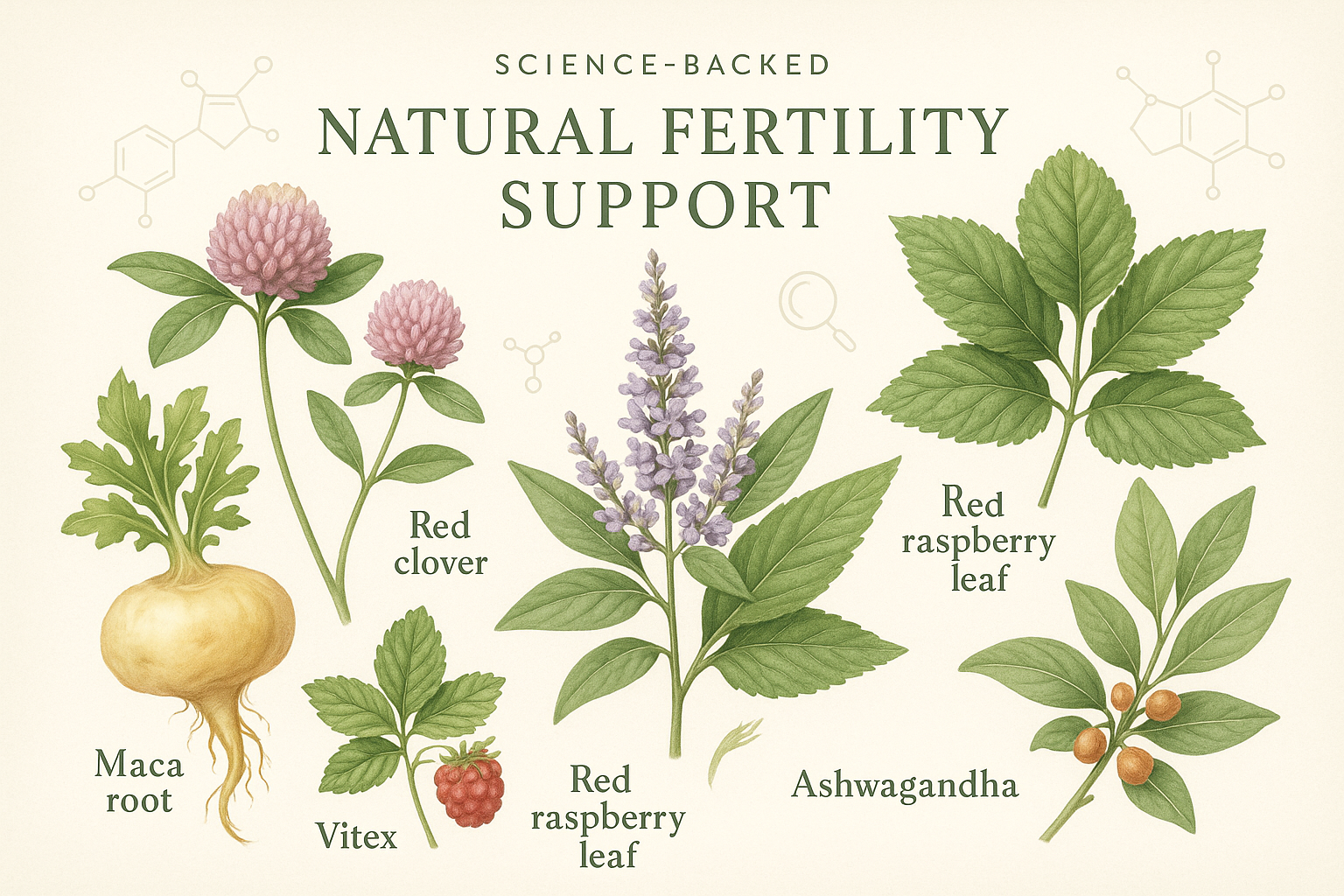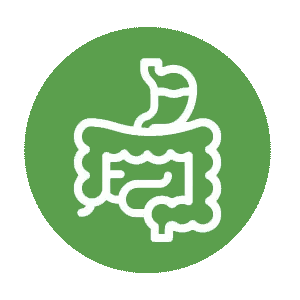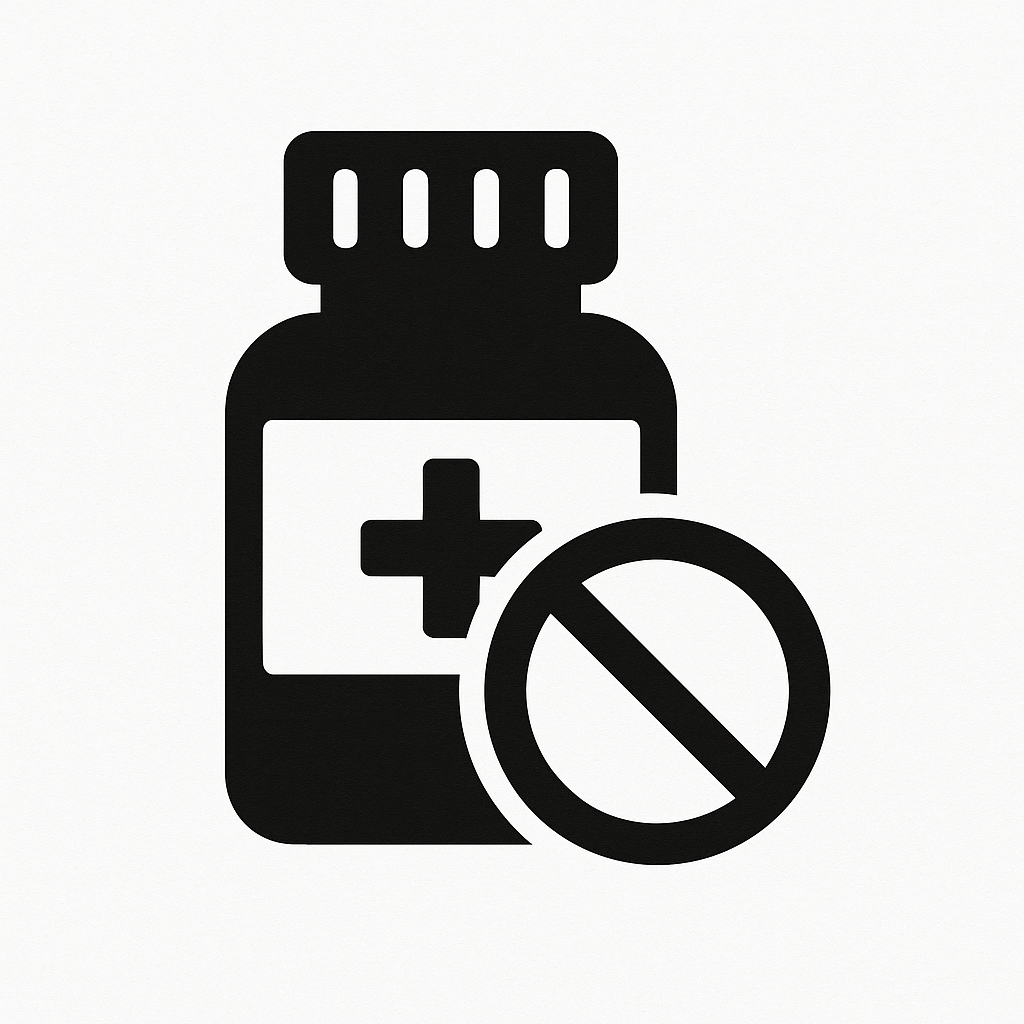
Science Backed Herbs to Increase Egg Quality Naturally
The journey to conception often leads women to explore every possible avenue for optimizing fertility. While modern medicine offers powerful interventions, there's growing interest in traditional herbs that have supported reproductive health for centuries—and increasingly, modern science is validating what ancient healers intuitively understood.
Egg quality is one of the most critical factors in successful conception, yet it's something many women feel powerless to influence. Unlike egg quantity, which steadily declines with age, egg quality can potentially be supported through various interventions. Herbal medicine offers a gentler, more holistic approach than pharmaceutical hormones, with many botanicals showing promise for reducing oxidative stress, balancing hormones, improving cellular energy production, and supporting the complex processes that determine egg health.
This comprehensive guide explores herbs with scientific evidence supporting their use for egg quality and female fertility. We'll examine the research, understand mechanisms of action, discuss appropriate usage, and help you make informed decisions about incorporating these botanicals into your fertility journey.
Understanding Egg Quality: What It Really Means
Before exploring specific herbs, it's essential to understand what "egg quality" actually means and why it matters so profoundly for conception.
Egg quality refers to whether an egg is chromosomally normal and capable of achieving fertilization, proper embryo development, implantation, and ultimately a healthy pregnancy. High-quality eggs have intact DNA, proper chromosome numbers, healthy mitochondria producing adequate energy, protective antioxidant systems, and appropriate cellular machinery for development.
Poor egg quality manifests as chromosomal abnormalities (the leading cause of miscarriage), failed fertilization, arrested embryo development, implantation failure, and increased pregnancy complications. Age is the primary factor affecting egg quality—as eggs age, they accumulate cellular damage, mitochondrial function declines, chromosomal errors become more common, and protective mechanisms weaken.
However, chronological age isn't destiny. Oxidative stress, inflammation, environmental toxins, poor nutrition, and lifestyle factors all influence egg quality. This is where herbs may offer support—many botanicals work by reducing oxidative damage, supporting mitochondrial function, modulating inflammation, and balancing hormones that govern egg development.
Ashwagandha: The Adaptogenic Fertility Supporter
Ashwagandha (Withania somnifera) is perhaps the most researched herb for fertility support, with a rich history in Ayurvedic medicine spanning thousands of years. Classified as an adaptogen, ashwagandha helps the body adapt to stress—and chronic stress is a significant fertility disruptor.
The Science: Research on ashwagandha's reproductive benefits is compelling. A study published in Evidence-Based Complementary and Alternative Medicine found that ashwagandha supplementation improved markers of reproductive health in women. The herb appears to work through multiple pathways relevant to egg quality.
Ashwagandha's adaptogenic properties help regulate the hypothalamic-pituitary-adrenal axis, reducing elevated cortisol levels that can interfere with reproductive hormones. Studies show it can balance thyroid function, with both thyroid hormone levels and fertility being closely linked. Research demonstrates significant antioxidant activity, helping protect eggs from oxidative damage that accelerates aging and impairs quality. Animal studies suggest ashwagandha may improve the function of reproductive organs and support hormonal balance.
A study in the Journal of Ethnopharmacology found that ashwagandha improved sexual function and reproductive health in women, with participants reporting enhanced vitality and wellbeing—factors that indirectly support fertility. Another study published in Fertility and Sterility examined ashwagandha's effects on stress and found significant reductions in cortisol levels and improvements in overall stress markers.
Practical Application: Typical dosing ranges from 300-600 mg daily of standardized extract (containing at least 5% withanolides, the active compounds). Some protocols use divided doses of 300 mg twice daily. Effects on stress and hormones typically manifest within 4-8 weeks, though reproductive benefits may take longer as eggs mature over 90-120 days. Ashwagandha is generally well-tolerated, though some people experience mild digestive upset or drowsiness.
Important Note: Ashwagandha belongs to the nightshade family, so avoid it if you have nightshade sensitivities. It may also interact with thyroid medications, so work with a healthcare provider if you have thyroid conditions.
Maca Root: The Hormone Balancing Powerhouse
Maca (Lepidium meyenii), a root vegetable from the Peruvian Andes, has been used for centuries to enhance fertility and vitality in both men and women. Unlike herbs that contain plant hormones, maca doesn't directly provide hormones but rather supports the body's own hormone production and balance.
The Science: Multiple studies have examined maca's effects on reproductive health. Research published in the International Journal of Biomedical Science found that maca positively affected sexual desire and reduced anxiety and depression in postmenopausal women—psychological factors that can impact fertility efforts.
More relevant to egg quality, animal studies published in Reproductive Biology and Endocrinology found that maca improved follicle maturation and increased the number of healthy follicles. While human research specifically on egg quality is limited, maca's effects on hormonal balance and energy metabolism suggest potential benefits.
Maca appears to work by supporting the hypothalamic-pituitary-ovarian axis, the hormonal feedback system that governs reproduction. It may enhance luteinizing hormone production, which triggers ovulation. Research suggests maca has adaptogenic properties similar to ashwagandha, helping the body respond to stress. The root is also nutrient-dense, providing minerals, amino acids, and fatty acids that support overall reproductive health.
A systematic review in Maturitas examining maca's effects on menopausal symptoms found improvements in hormonal balance and sexual function, suggesting the herb's ability to modulate female reproductive hormones across different life stages.
Practical Application: Maca is typically used in larger doses than many herbs because it's more of a food than a concentrated botanical. Common doses range from 1,500-3,000 mg (1.5-3 grams) daily, sometimes divided into multiple doses. Gelatinized maca may be easier to digest than raw maca powder. Colors matter—red and black maca are often preferred for female fertility over yellow maca.
Start with lower doses and increase gradually to assess tolerance. Some women notice increased energy and improved mood within days to weeks, while hormonal effects may take 6-12 weeks to fully manifest.
Considerations: Maca is generally safe, but some people experience digestive upset, particularly with raw preparations. It may affect thyroid function in those with thyroid conditions, though research is mixed. If you have hormone-sensitive conditions, consult a healthcare provider before using maca.
Vitex (Chasteberry): The Progesterone Supporter
Vitex agnus-castus, commonly called chasteberry or vitex, is one of the most extensively studied herbs for female reproductive health. Its primary action involves supporting progesterone production—crucial for egg quality, ovulation, and maintaining early pregnancy.
The Science: Research on vitex is substantial. A landmark study published in the Journal of Women's Health & Gender-Based Medicine found that vitex improved progesterone levels and increased pregnancy rates in women with fertility challenges. The study showed that 26% of women taking vitex became pregnant compared to 10% in the placebo group.
Vitex doesn't contain hormones but rather influences the pituitary gland to increase luteinizing hormone production while slightly inhibiting follicle-stimulating hormone release. This shift can help balance the estrogen-to-progesterone ratio, particularly in women with luteal phase defects (shortened second half of the menstrual cycle with inadequate progesterone).
A systematic review in Phytomedicine analyzed multiple clinical trials and concluded that vitex effectively treats premenstrual syndrome and irregular cycles—both of which can indicate hormonal imbalances that affect fertility. Another study in Reproductive BioMedicine Online found that vitex increased mid-luteal progesterone levels and lengthened luteal phases in women with luteal insufficiency.
Adequate progesterone is essential for egg quality because it supports the proper development of follicles housing eggs. It also prepares the uterine lining for implantation and maintains early pregnancy until the placenta takes over hormone production.
Practical Application: Vitex is typically taken as 20-40 mg daily of standardized extract or 400-500 mg of dried herb in capsule form. Timing matters—many herbalists recommend taking vitex in the morning on an empty stomach for optimal absorption. Unlike quick-acting supplements, vitex requires patience. Effects typically take at least 3 months to manifest, with some practitioners recommending 6-12 months for full benefits.
Vitex is most appropriate for women with luteal phase defects, irregular cycles, or progesterone deficiency. It may not be suitable for women with PCOS or those already ovulating regularly with good progesterone levels.
Important Considerations: Discontinue vitex if you suspect pregnancy, as safety during pregnancy hasn't been established. It may interact with hormonal contraceptives, dopamine-related medications, and fertility drugs. Some women experience mild side effects including nausea, headaches, or skin reactions. Work with a knowledgeable practitioner to determine if vitex is appropriate for your specific situation.
Rhodiola: The Stress-Busting Fertility Herb
Rhodiola rosea, another powerful adaptogen, has been used in traditional medicine across Scandinavia, Russia, and China. While not as commonly associated with fertility as other herbs, rhodiola's ability to combat stress and support energy metabolism makes it relevant for egg quality.
The Science: Research on rhodiola focuses primarily on stress reduction, mental performance, and fatigue—all factors that indirectly influence fertility. A study published in Phytomedicine found that rhodiola significantly reduced stress, anxiety, and depression while improving overall wellbeing. Since chronic stress elevates cortisol, which can suppress reproductive hormones and accelerate ovarian aging, rhodiola's stress-modulating effects support fertility.
More specifically relevant to egg quality, rhodiola demonstrates significant antioxidant activity. Research published in the International Journal of Medicinal Sciences found that rhodiola protected cells from oxidative stress and improved mitochondrial function—both crucial for egg quality. Eggs have the highest mitochondrial count of any cell, and mitochondrial health directly impacts egg quality and embryo development potential.
Animal studies have shown that rhodiola can protect reproductive organs from damage and support healthy reproductive function. While human studies specifically on egg quality are lacking, the mechanisms by which rhodiola works suggest potential benefits for women trying to conceive.
Practical Application: Standard doses range from 200-600 mg daily of standardized extract (typically standardized to 3% rosavins and 1% salidroside). Lower doses (200-400 mg) tend to be more calming, while higher doses (400-600 mg) are more stimulating. Most practitioners recommend taking rhodiola in the morning or early afternoon, as evening doses may interfere with sleep in some people.
Effects on energy and mood typically manifest within days to weeks, while benefits for reproductive health require longer supplementation as eggs mature over several months.
Considerations: Rhodiola is generally well-tolerated but can cause jitteriness or agitation in sensitive individuals, especially at higher doses. It may interact with medications for diabetes, blood pressure, and immune suppression. Avoid rhodiola if you have bipolar disorder, as adaptogens can potentially trigger manic episodes in susceptible individuals.
Shatavari: The Ayurvedic Fertility Tonic
Shatavari (Asparagus racemosus), whose name translates roughly to "she who possesses 100 husbands," is revered in Ayurvedic medicine as the primary herb for female reproductive health. It's considered a rejuvenative tonic specifically for the female reproductive system.
The Science: While research on shatavari is less extensive than some herbs, existing studies suggest genuine benefits. Research published in Biomedicine & Pharmacotherapy found that shatavari demonstrated significant antioxidant activity and supported reproductive health in animal models. The herb appears to contain phytoestrogens—plant compounds with mild estrogen-like effects—which may help balance hormones.
A study in the Journal of Ethnopharmacology found that shatavari increased estrogen levels and supported follicle development in rats. Another study published in Reproductive Sciences suggested that shatavari improved reproductive parameters and enhanced the number of healthy ovarian follicles.
Shatavari is also considered a galactagogue (substance that promotes lactation) and is used to support overall female vitality and hormonal balance. Traditional Ayurvedic texts describe it as nourishing reproductive tissues and supporting natural fertility.
Practical Application: Typical doses range from 500-1,000 mg twice daily of standardized extract, or 1-2 teaspoons of powder mixed into warm milk or water. Shatavari is traditionally prepared with ghee or milk in Ayurvedic practice. As a nourishing herb rather than a quick-acting remedy, shatavari requires several months of consistent use for optimal benefits—generally 3-6 months.
Considerations: Shatavari is generally safe and well-tolerated. However, it belongs to the asparagus family, so avoid it if you have allergies to asparagus. Because it may have mild estrogenic effects, women with estrogen-sensitive conditions should consult healthcare providers before use. It may also have diuretic properties.
Red Raspberry Leaf: The Uterine Tonic
Red raspberry leaf (Rubus idaeus) is perhaps the most famous "female herb" in Western herbalism, traditionally used to tone the uterus and support reproductive health. While it doesn't directly affect eggs, it supports the environment where embryos implant and grow.
The Science: Scientific research on red raspberry leaf is limited compared to other herbs, but existing studies and traditional use suggest benefits. A study published in the Journal of Midwifery and Women's Health found that red raspberry leaf consumption during pregnancy was associated with shorter labor and fewer interventions—suggesting real effects on uterine tissue.
Red raspberry leaf is rich in nutrients important for reproductive health, including iron, calcium, magnesium, and vitamins B and C. It contains fragrine, a compound that may help tone uterine muscles. While the exact mechanisms aren't fully understood, herbalists have used red raspberry leaf for centuries to prepare the uterus for pregnancy and support overall reproductive wellness.
The herb is generally considered more of a nutritive tonic than a powerful medicinal herb—it supports overall reproductive health through gentle, gradual action rather than dramatic hormonal shifts.
Practical Application: Red raspberry leaf is typically consumed as tea, with 1-3 cups daily being common. Some prefer capsules or tinctures for convenience. Because it's gentle and nutritive, red raspberry leaf can be used long-term. Many herbalists recommend starting it several months before trying to conceive and continuing through the first trimester (though some sources suggest avoiding it in early pregnancy, so consult your provider).
Considerations: Red raspberry leaf is very safe and rarely causes side effects. However, some sources recommend avoiding it in early pregnancy if you have a history of miscarriage, though evidence for this concern is limited. It may interact with medications that affect blood clotting.
Dong Quai: The "Female Ginseng"
Dong quai (Angelica sinensis), often called "female ginseng," is a cornerstone herb in Traditional Chinese Medicine for women's health. It's typically used in combination formulas rather than alone, as TCM emphasizes synergistic herbal blends.
The Science: Research on dong quai presents a mixed picture. Some studies suggest benefits for reproductive health, while others show minimal effects when used alone. A review in the American Journal of Chinese Medicine found that dong quai demonstrated effects on estrogen receptors and may help regulate menstrual cycles, though mechanisms remain unclear.
Animal studies published in Phytotherapy Research found that dong quai improved reproductive parameters and supported hormonal balance. The herb contains ferulic acid and other compounds with antioxidant and anti-inflammatory properties that could theoretically support egg quality.
However, a study in Fertility and Sterility found that dong quai alone didn't significantly affect menopausal symptoms, suggesting it may be most effective when combined with other herbs—consistent with traditional TCM usage.
Practical Application: Dong quai is typically dosed at 3-4 grams daily of dried root, often taken in divided doses. Because TCM traditionally uses dong quai in complex formulas, many practitioners recommend working with a qualified TCM herbalist who can create a personalized blend suited to your specific constitution and fertility needs.
Effects typically require several months of consistent use. Many TCM protocols recommend taking dong quai during specific phases of your menstrual cycle rather than throughout the entire month.
Important Warnings: Dong quai should be discontinued if you become pregnant, as it may stimulate uterine contractions. It can thin the blood, so avoid it if taking anticoagulant medications or before surgery. It may also increase photosensitivity. Some sources suggest avoiding it if you have heavy menstrual bleeding or fibroids, though TCM practitioners may use it in specific contexts. Always work with a knowledgeable practitioner when using dong quai.
Tribulus Terrestris: The Ovulation Supporter
Tribulus terrestris, commonly called puncture vine, has been used in both Traditional Chinese Medicine and Ayurveda for reproductive health. While it's more famous for male fertility, research suggests potential benefits for women as well.
The Science: Research published in the Journal of Dietary Supplements found that tribulus improved sexual function and satisfaction in women. More relevant to fertility, studies suggest tribulus may stimulate ovulation in women with ovulatory dysfunction.
A study in the Daru Journal of Pharmaceutical Sciences found that tribulus improved reproductive parameters in female rats. The herb appears to work by influencing follicle-stimulating hormone and luteinizing hormone—the pituitary hormones that govern ovarian function and ovulation.
Research in Phytomedicine suggested that tribulus may be particularly beneficial for women with PCOS, helping to stimulate ovulation and regulate cycles. However, more research is needed to confirm these effects in humans.
Practical Application: Typical doses range from 500-1,500 mg daily of standardized extract. Some protocols use tribulus only during the follicular phase (from menstruation until ovulation) rather than throughout the entire cycle, theoretically supporting follicle development during the time eggs are maturing.
Effects on ovulation and cycle regularity may be noticed within 1-3 cycles, though egg quality improvements would require longer as eggs mature over several months.
Considerations: Tribulus is generally safe but may cause mild digestive upset in some people. Women with PCOS should use it only under practitioner guidance, as hormonal effects could be unpredictable. Discontinue if pregnancy is suspected or confirmed.
Combining Herbs: Synergy and Caution
Traditional herbal medicine systems rarely use single herbs in isolation. Chinese medicine formulas contain multiple herbs working synergistically, and Ayurveda similarly employs compound preparations. Modern research increasingly validates this approach, showing that herb combinations often produce better results than individual botanicals.
However, combining herbs requires knowledge and caution. Some combinations enhance effects (potentially beneficial), while others may cause interactions (potentially problematic). Consider working with qualified practitioners—licensed acupuncturists, naturopathic doctors, or clinical herbalists—who can create personalized protocols based on your specific situation.
Common beneficial combinations include ashwagandha and rhodiola for stress support, maca and vitex for hormonal balance, and red raspberry leaf with nettle for nutritive support. Traditional TCM formulas often combine dong quai with other herbs like peony, rehmannia, and others based on individual constitution.
When combining herbs, start with one at a time, adding new herbs every 2-4 weeks. This allows you to assess individual tolerance and identify any that cause side effects. Keep detailed records of what you're taking, doses, and any changes in symptoms or cycle patterns.
The Timeline: Setting Realistic Expectations
Herbal medicine requires patience. Unlike pharmaceutical drugs that often produce rapid effects, herbs work gradually by supporting the body's natural processes. For fertility specifically, the timeline for egg quality improvement spans several months because eggs take 90-120 days to mature from primordial follicles to ovulation.
A realistic timeline looks like this:
Month 1-2: Initial implementation and adjustment. You may notice improvements in energy, stress levels, sleep, or cycle regularity, but don't expect egg quality changes yet.
Month 3-4: The eggs recruited for ovulation around this time have been developing under the influence of your herbal protocol. This is when effects on egg quality might begin manifesting, though you won't directly observe this unless undergoing fertility treatment.
Month 5-6: Continued improvements. If herbs are going to significantly impact your fertility, effects should be apparent by now—more regular cycles, improved fertility markers, or hopefully, conception.
Many herbalists recommend committing to a protocol for at least 3-6 months before evaluating effectiveness. If you're over 35 or have known fertility challenges, work with both an herbalist and a fertility specialist to ensure you're not losing valuable time with approaches that aren't working.
Quality Matters: Choosing Herbal Supplements
The herbal supplement industry is minimally regulated, and quality varies dramatically between products. Low-quality herbs may be contaminated with heavy metals, pesticides, or other adulterants, may not contain the stated amounts of active compounds, or may use poor-quality plant material with minimal potency.
When selecting herbal supplements, prioritize products with third-party testing from organizations like USP, NSF, or ConsumerLab. Look for standardized extracts that specify the percentage of active compounds. Choose organic herbs when possible to minimize pesticide exposure. Consider the form—capsules, tinctures, teas, and powders have different absorption rates and potencies. Check expiration dates, as herbs lose potency over time.
Reputable brands include those that specialize in women's health, provide certificates of analysis upon request, have transparent sourcing practices, and receive positive independent reviews.
Consider working with a qualified herbalist who can recommend specific brands and preparations they trust based on clinical experience.
When Herbs Aren't Enough
While herbs offer valuable support for fertility, they're not appropriate as sole treatment in all situations. Medical intervention becomes necessary when you're over 35 and haven't conceived after 6 months of trying, or under 35 and haven't conceived after 12 months. If you have diagnosed fertility conditions like blocked fallopian tubes, severe endometriosis, or significantly diminished ovarian reserve, herbs alone are unlikely to overcome these challenges. Male factor fertility issues require specific interventions herbs can't address. If you have recurrent pregnancy losses, comprehensive medical evaluation is essential.
Herbs work best for supporting overall reproductive health in healthy women optimizing their fertility, mild hormonal imbalances that affect cycle regularity or ovulation, stress-related fertility challenges, or as complementary support alongside medical fertility treatments.
Time is precious in fertility, especially after age 35. Don't let commitment to natural approaches delay necessary medical intervention. Many women successfully combine herbal support with fertility treatments like IUI or IVF—they're not mutually exclusive approaches.
Your Herbal Fertility Protocol
Based on the research and traditional use patterns discussed, here's a framework for creating an herbal fertility protocol:
Foundation Herbs (Choose 1-2):
- Ashwagandha for stress support and hormonal balance
- Maca for overall hormonal support and energy
- Red raspberry leaf as a nutritive uterine tonic
Targeted Herbs (Add based on specific needs):
- Vitex if you have luteal phase defects or low progesterone
- Rhodiola for additional stress support and antioxidant protection
- Shatavari for overall reproductive nourishment
- Tribulus if you have ovulation challenges
Implementation Strategy: Start with foundational herbs first, adding them one at a time over 2-4 weeks. Once you've established tolerance to foundation herbs, consider adding one targeted herb based on your specific needs. Take herbs consistently at the same time each day for best results. Track your menstrual cycle, symptoms, and any changes you notice. Plan to continue the protocol for at least 3-6 months before evaluating effectiveness.
Work with qualified practitioners—herbalists, naturopathic doctors, or acupuncturists—who can personalize recommendations based on your constitution, health history, and specific fertility challenges.
Embrace Your Fertility Journey with Herbal Wisdom
The path to conception is deeply personal, and every woman's journey is unique. Herbs offer time-tested wisdom combined with emerging scientific validation, providing gentle yet effective support for egg quality and overall reproductive health.
While not magic bullets, the herbs discussed in this article represent powerful allies in optimizing your fertility naturally. They work best when combined with a nutrient-dense diet, stress management, appropriate exercise, quality sleep, and—when necessary—medical support from fertility specialists.
Remember that conception timing isn't entirely within your control, but supporting your body with evidence-based herbal medicine empowers you to optimize your fertility potential. Whether you're just beginning your conception journey or have been trying for some time, these botanical allies offer hope and tangible actions you can take today.
Ready to support your fertility journey with science-backed natural solutions? Explore comprehensive women's health supplements at Matevara's Women's Health Collection. Their carefully formulated products combine traditional herbal wisdom with modern research, providing the nutritional and botanical support your reproductive system needs to thrive.
Disclaimer: This article is provided for informational and educational purposes only and does not constitute medical advice, diagnosis, or treatment recommendations. The information presented about herbs and fertility is based on traditional use, preliminary research, and general knowledge, but individual responses to herbal supplements vary significantly. Before taking any herbs or supplements, especially if you are trying to conceive, currently pregnant, or breastfeeding, you must consult with qualified healthcare providers including reproductive endocrinologists, naturopathic doctors, or clinical herbalists who can assess your specific situation. This is particularly critical if you have diagnosed fertility conditions, irregular menstrual cycles, hormonal imbalances, polycystic ovary syndrome, endometriosis, or other reproductive health concerns, are currently taking fertility medications or undergoing fertility treatments, have other medical conditions or take prescription medications that coul
Share








